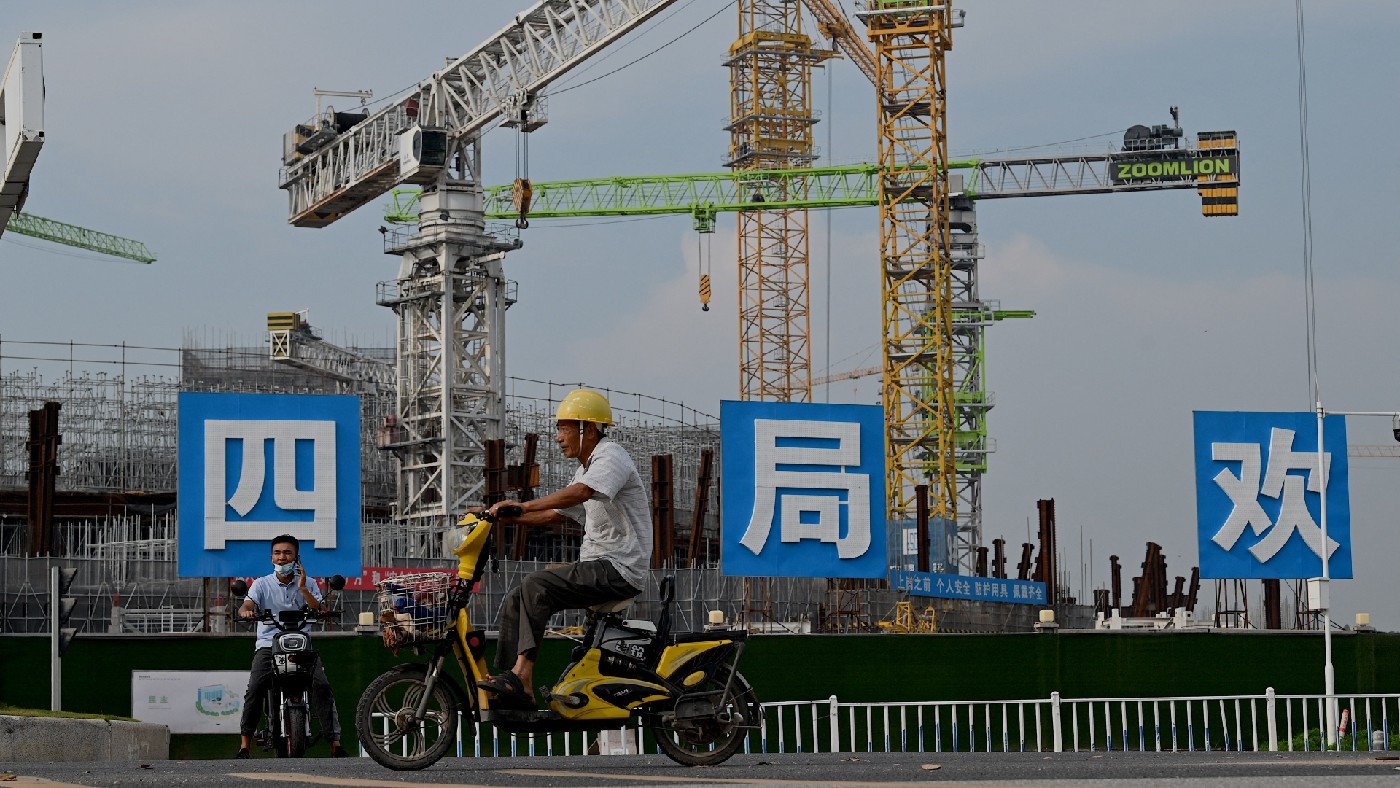Investing in China: what do the experts think?
Some have been predicting a full-scale ‘China crisis’ for years, while others are spying opportunities

A free daily email with the biggest news stories of the day – and the best features from TheWeek.com
You are now subscribed
Your newsletter sign-up was successful
Looming disaster?
China “perma-bears”, like fund manager Jim Chanos of Kynikos Associates, have been predicting a full-scale “China crisis” for years, said Niall Ferguson on Bloomberg. Could the saga of Evergrande – the embattled property giant–mark a turning point? If so, plenty of foreign investors are “on the wrong side” of the bet.
In the 15 months to June 2021, they poured $527bn into Chinese stocks and bonds – with much of the cash finding its way, “via the offshore dollar bond market”, into high-yielding real estate debt. Funds holding Evergrande debt include BlackRock, Fidelity International, and UBS Asset Management. Millions of retail savers are exposed to the wider market via China, Asian and tech funds.
The Week
Escape your echo chamber. Get the facts behind the news, plus analysis from multiple perspectives.

Sign up for The Week's Free Newsletters
From our morning news briefing to a weekly Good News Newsletter, get the best of The Week delivered directly to your inbox.
From our morning news briefing to a weekly Good News Newsletter, get the best of The Week delivered directly to your inbox.
The veteran financier George Soros recently warned that investors face “a rude awakening”. It’s hard to disagree. The crackdown on property is just the latest blow President Xi has struck against “capitalism with Chinese characteristics”. Investors ignore this “anti-capitalist turn” at their peril.
Handbrake turn
Xi’s “handbrake turn” against private business has triggered “a precipitous fall in the stock market valuations of tech, digital and other companies”, said George Magnus in the FT. Shares in Didi, the ride-hailing app listed in New York, are down more than 40% since its June IPO.
There’s also a risk for Western stocks, said Wendy Ye and Evelyn Cheng on CNBC. As a Bank of America note outlines, Xi’s crackdown has clear implications for luxury companies and racy car stocks like Tesla.
A free daily email with the biggest news stories of the day – and the best features from TheWeek.com
Scenting bargains
Still, that doesn’t mean investors should kiss China goodbye, said Dave Baxter in Investors’ Chronicle. “Contrarian” fund managers have already “scented bargains”.
In July, the global value fund manager Hugh Sergeant described Baidu, the hammered internet search company, as “the cheapest megacap I’ve ever seen in my career”.
Other bulls spy an opportunity to back sectors aligned with Xi’s aims “of building a fairer and more productive economy”, said the FT. Hot themes include renewable energy, healthcare and artificial intelligence.
When it comes to China, observes Justin Thomson of T. Rowe Price, the cardinal rule “is to be on the right side of government policy”.
-
 James Van Der Beek obituary: fresh-faced Dawson’s Creek star
James Van Der Beek obituary: fresh-faced Dawson’s Creek starIn The Spotlight Van Der Beek fronted one of the most successful teen dramas of the 90s – but his Dawson fame proved a double-edged sword
-
 Is Andrew’s arrest the end for the monarchy?
Is Andrew’s arrest the end for the monarchy?Today's Big Question The King has distanced the Royal Family from his disgraced brother but a ‘fit of revolutionary disgust’ could still wipe them out
-
 Quiz of The Week: 14 – 20 February
Quiz of The Week: 14 – 20 FebruaryQuiz Have you been paying attention to The Week’s news?
-
 Health insurance: Premiums soar as ACA subsidies end
Health insurance: Premiums soar as ACA subsidies endFeature 1.4 million people have dropped coverage
-
 Anthropic: AI triggers the ‘SaaSpocalypse’
Anthropic: AI triggers the ‘SaaSpocalypse’Feature A grim reaper for software services?
-
 Currencies: Why Trump wants a weak dollar
Currencies: Why Trump wants a weak dollarFeature The dollar has fallen 12% since Trump took office
-
 Elon Musk’s starry mega-merger
Elon Musk’s starry mega-mergerTalking Point SpaceX founder is promising investors a rocket trip to the future – and a sprawling conglomerate to boot
-
 TikTok: New owners, same risks
TikTok: New owners, same risksFeature What are Larry Ellison’s plans for TikTok US?
-
 Will SpaceX, OpenAI and Anthropic make 2026 the year of mega tech listings?
Will SpaceX, OpenAI and Anthropic make 2026 the year of mega tech listings?In Depth SpaceX float may come as soon as this year, and would be the largest IPO in history
-
 Leadership: A conspicuous silence from CEOs
Leadership: A conspicuous silence from CEOsFeature CEOs were more vocal during Trump’s first term
-
 Ryanair/SpaceX: could Musk really buy the airline?
Ryanair/SpaceX: could Musk really buy the airline?Talking Point Irish budget carrier has become embroiled in unlikely feud with the world’s wealthiest man